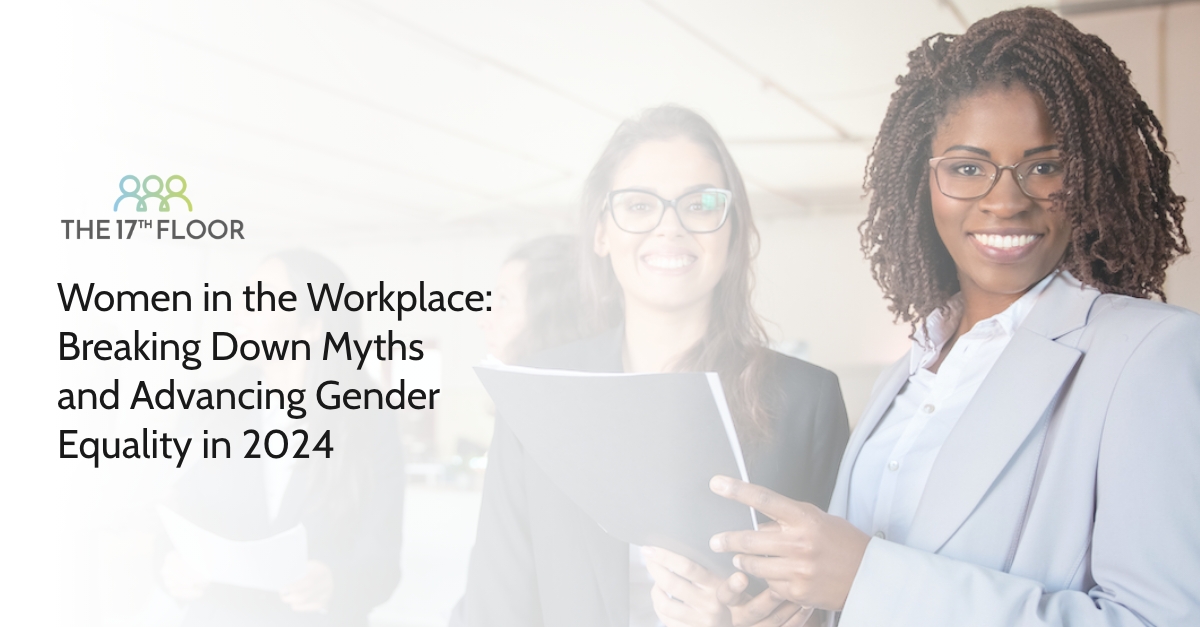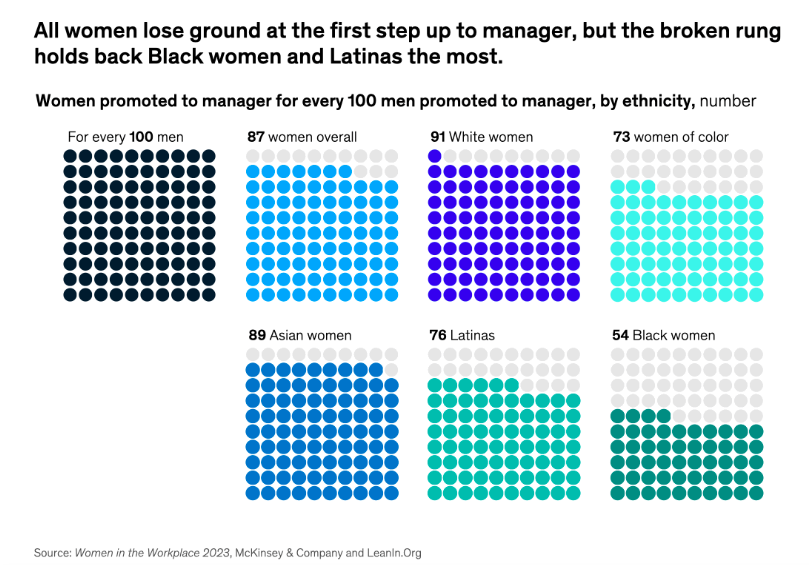Women in the Workplace: Breaking Down Myths and Advancing Gender Equality in 2024

Women are more ambitious and driven in their careers than ever before, and workplace flexibility has played a crucial role in fueling their aspirations. Despite the progress made in gender diversity and inclusion efforts, women’s representation in the corporate world is still lagging.
This insight is derived from the Women in the Workplace 2023 report, a comprehensive study conducted by McKinsey in partnership with LeanIn.Org. Their findings present challenges and opportunities surrounding women’s participation in the professional sphere.
Myth #1: Women Are Becoming Less Ambitious
Reality: Women Are More Ambitious, and Flexibility Drives Their Aspirations
Contrary to the misconception that women are becoming less ambitious, the report reveals that women’s ambition is on the rise. The pandemic and increased flexibility have not dampened women’s career ambitions; in fact, they have fueled them.
Women at all stages of their careers are as committed to their career growth as men. Young women, especially, exhibit remarkable ambition, with 9/10 under 30 aspiring to be promoted to the next level and 3/4 aiming to become senior leaders.
Myth #2: The Glass Ceiling Is the Biggest Barrier to Women’s Advancement
Reality: The Broken Rung is the Most Significant Barrier
The report reaffirms that women’s primary hurdle on their path to senior leadership is not the “glass ceiling” at the top but the “broken rung” at the entry-level management position.
For every 100 men promoted from entry-level to manager, only 87 women were promoted. This gap is even more pronounced for women of colour, particularly Black women, whose promotion rates have regressed to 2018 levels.

Myth #3: Microaggressions Have a ‘Micro’ Impact
Reality: Microaggressions Have a Substantial and Long-lasting Impact
Microaggressions, subtle everyday acts of discrimination, significantly impact women in the workplace. Women experience microaggressions much more than men, leading to negative consequences such as decreased psychological safety, higher stress levels, and career dissatisfaction.
The report reveals that women of colour experience these slights more frequently and with greater intensity. Addressing microaggressions is crucial for retaining talent and fostering an inclusive work environment.
Myth #4: Flexible Work is Primarily for Women
Reality: Flexibility Benefits Both Men and Women and Is Vital for Organizational Success
Workplace flexibility is no longer considered a perk; it is now a critical benefit for both men and women. The report emphasizes that most employees value the opportunity to work remotely and control their schedules, ranking it second only to healthcare regarding company benefits.
Flexibility is especially important for women, as it enables them to balance work and family responsibilities effectively. However, men also see significant benefits in flexibility, such as improved work-life balance and reduced burnout.
The Impact on HR and Payroll Professionals
The insights from the McKinsey report are particularly important to HR, payroll, and accounting professionals. The data can inform policies and practices aimed at promoting gender equality. For instance, HR professionals can leverage these insights to design diversity and inclusion initiatives, create equitable promotion and compensation structures, and foster a culture that supports work-life balance.
Moreover, the report serves as a reminder of the importance of compliance with government regulations regarding gender equality and discrimination. It’s imperative that policies align with legal frameworks to ensure a fair and inclusive workplace.
Software Solutions: Aiding the Journey Towards Inclusion
The role of technology in promoting gender equality cannot be understated. Software solutions tailored for HR and payroll management can significantly ease the process of monitoring and ensuring gender equity within organizations.
Companies need to measure and track outcomes for women’s advancement, considering metrics like hiring, promotions, attrition, participation in career development programs, and employee sentiments.
Sources:

Denise Burnett
Our workforce is predominantly female with all the senior leadership team being female. It is a unique place to be, and I feel very fortunate to experience a workplace where gender inequality isn’t felt as much as in other industries I’ve worked in. But it is still very present in daily life and in other workplaces. We need to change how we support typical gender roles and focus on evaluating people on their skills and abilities regardless of gender, race, orientation, etc. May the best person be promoted!
This is great! Thanks for sharing, Denise.
Martina Heine, PLP
That is great! Our SLT is 40% female. And with that being said, our parent company has appointed our first ever female CEO!!
But yes, there is still work to be done…..the “broken rung” needs to be repaired, or better yet, replaced.
This is so great, Martina! It’s good to know that there are companies that provide these amazing opportunities for women 😄
Lisa Locher
I have felt fortunate to be a part of organizations that seem to demonstrate equity regardless of gender, but I do recognize that for some individuals and some organizations, this is not the case and they still have a ways to go.
Yes, but having companies that promote equality as an example is a great first step. Thanks, Lisa!